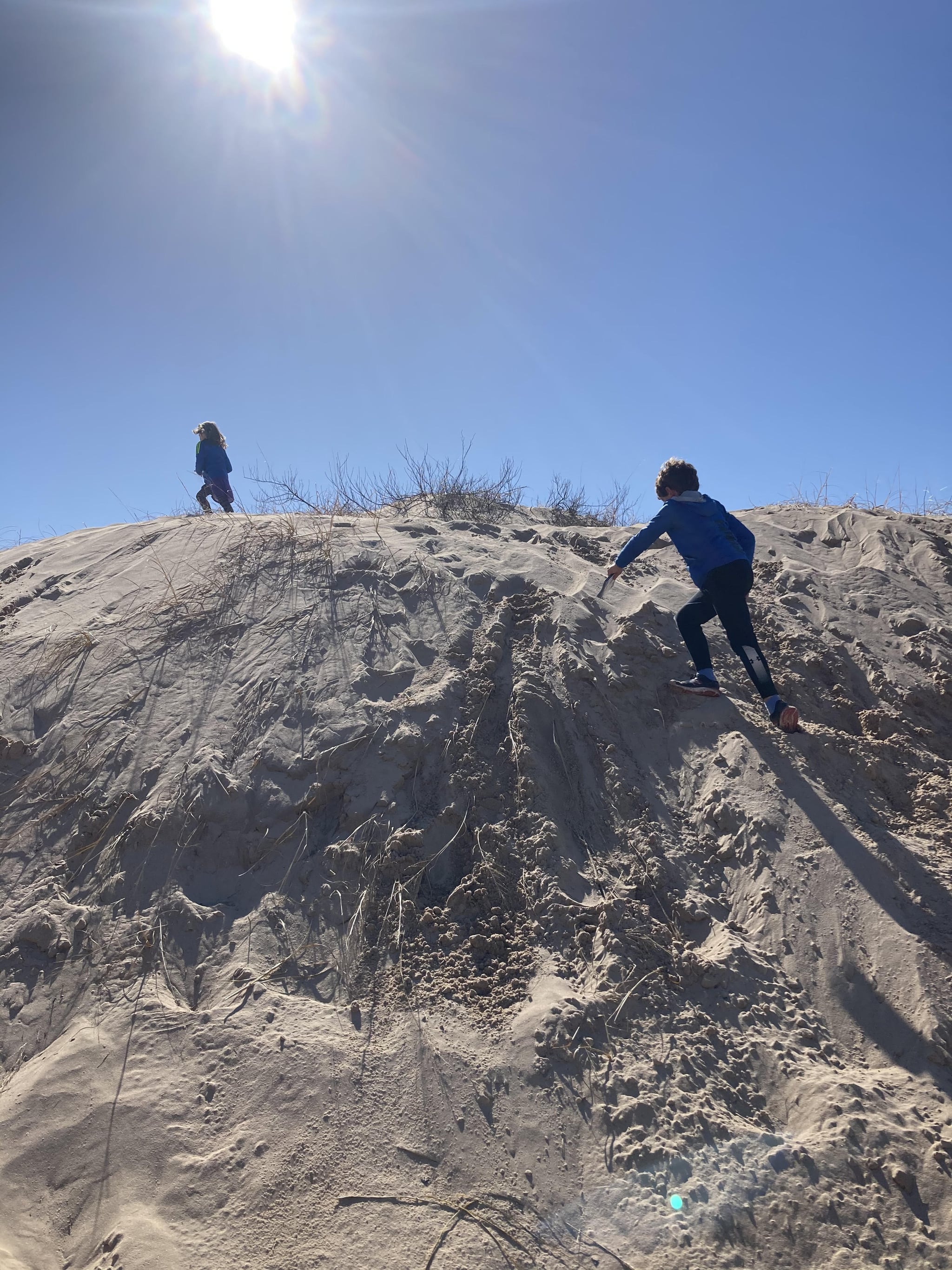How I Got My Kids to Care About The Environment
Get Your Kids to Care About the Environment by Helping Them Form a Relationship With Nature

My family is evidence that it's difficult to wholeheartedly care about the environment until you have a real relationship with it. I mean, why care about something you don't fully understand or even appreciate? For me, it was difficult to tell my kids that they should try to protect the environment before we habitually immersed ourselves in nature.
Before the pandemic, sure, we recycled. When we saw trash on the ground, we picked it up. Each year, we talked about Earth Day (which happens to be on my birthday, too), composted our food, and even planted a garden. But pre-COVID, it felt like I was lecturing my kids about the importance of the environment . . . instead of them experiencing it.
So, when our world came to a halt at the start of the pandemic, nature is where we turned. The kids and I would venture to a local nature trail or preserve at least once a week. And when we didn't do that, we began to truly slow down and observe the happenings in our own suburban backyard. We noticed what kinds of birds frequented and built nests. The kids wanted to buy them a bird feeder to help care for them. From here, we identified the trees that stretched to the sky and even the wildflowers that grew in a field across the street. It didn't take much for my kids to feel connected to nature. Their small observations, like a finding a blue jay feather on the ground, gave their young minds enough wonder to start the journey towards appreciating the world around them.
After a couple of months, our whole family grew attached to the outdoors. The wilder the trail, the better. The kids became obsessed with finding "treasures" and stuffing their pockets with them. We even installed a nature shelf for all of their findings so they could be on display. We also read books about nature, did nature art together, and more. Their love for our earth blossomed, which made mine swell, too.
Now that my kids have formed a bond with Mother Nature, they truly care for our earth. They care for it because they understand how it cares for them. We feel the benefits the earth gives us, so we want to take good care of it too. Because without having habitual contact with nature, children just see this earth as some random green and blue sphere they see pictures of once a year. Sure, having Earth Day is wonderful. Even teaching kids about the environment surrounding Earth Day is smart. However, children (humans, really) won't truly want to help the earth if they don't have a relationship with it.
One time when the kids and I went on a hike along a rocky river, my son started noticing lots of hidden trash tucked away between boulders. He began gathering it and forming a little pile. His buddy saw this and joined right in. On the spot, they formed a friendly competitive trash collecting match to see who could find the most. A spontaneous game ensued surrounding saving our earth. The next morning, he asked if he could go back so he could "beat his record."
My daughter, the fiery one, well she gets straight-up mad when she finds trash on the ground. She loves to pick it up then loudly belt out, "It's not hard to throw your trash away, people!" She also gives a good lecture to all family members when they forget to turn the lights or TV off after leaving a room, or turn the water off when you're brushing your teeth. Most importantly, my kids are asking questions on how we can do better, environmentally speaking. And trust me, we can. They're making me better, too.
Getting my kids immersed into nature and to learn to truly honour and respect it has been one of the greatest experiences as a parent. To accomplish this, you don't need grand adventures to national parks. A backyard or a walk in the park will do just fine. Week by week, water your own kids' relationship with Mother Nature . . . and watch it bloom.
Angela-Anagnost Repke is a writer and writing instructor dedicated to raising two empathetic children. She hopes that her graduate degrees in English and counseling help her do just that. In addition to PS, she has been published in Good Housekeeping, Good Morning America, ABC News, Parents, Romper, and many more.







